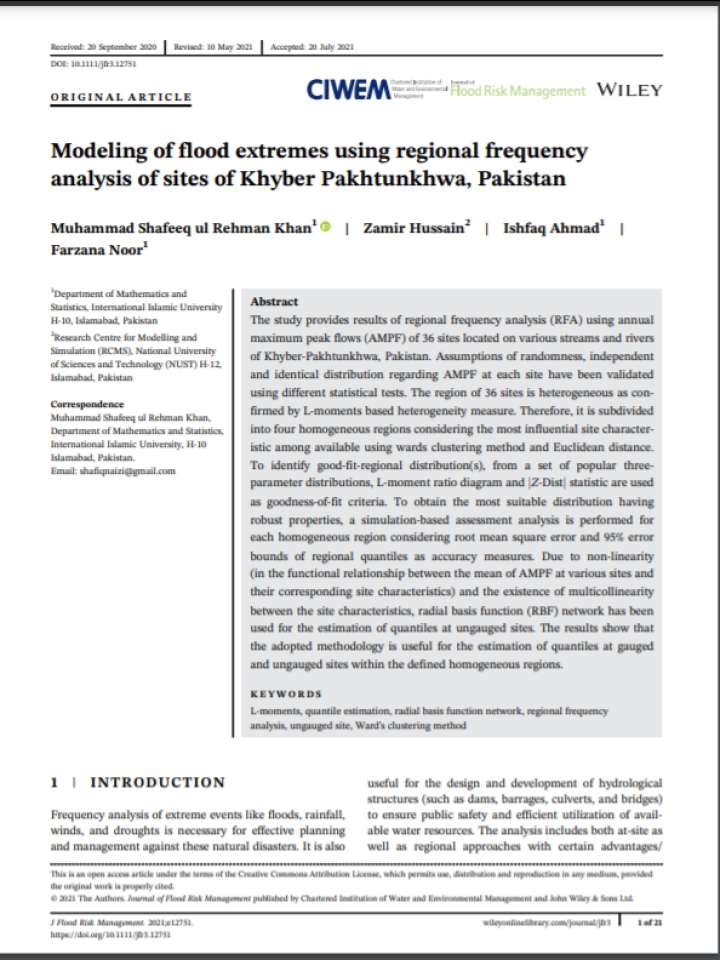Modeling of flood extremes using regional frequency analysis of sites of Khyber Pakhtunkhwa, Pakistan
The study provides results of regional frequency analysis (RFA) using annual maximum peak flows (AMPF) of 36 sites located on various streams and rivers of Khyber-Pakhtunkhwa, Pakistan. Assumptions of randomness, independent and identical distribution regarding AMPF at each site have been validated using different statistical tests. The region of 36 sites is heterogeneous as confirmed by L-moments based heterogeneity measure. Therefore, it is subdivided into four homogeneous regions considering the most influential site characteristic among available using wards clustering method and Euclidean distance.
To identify good-fit-regional distribution(s), from a set of popular three-parameter distributions, L-moment ratio diagram and |Z-Dist| statistic are used as goodness-of-fit criteria. To obtain the most suitable distribution having robust properties, a simulation-based assessment analysis is performed for each homogeneous region considering root mean square error and 95% error bounds of regional quantiles as accuracy measures. Due to non-linearity (in the functional relationship between the mean of AMPF at various sites and their corresponding site characteristics) and the existence of multicollinearity between the site characteristics, radial basis function (RBF) network has been used for the estimation of quantiles at ungauged sites. The results show that the adopted methodology is useful for the estimation of quantiles at gauged and ungauged sites within the defined homogeneous regions.
Explore further
